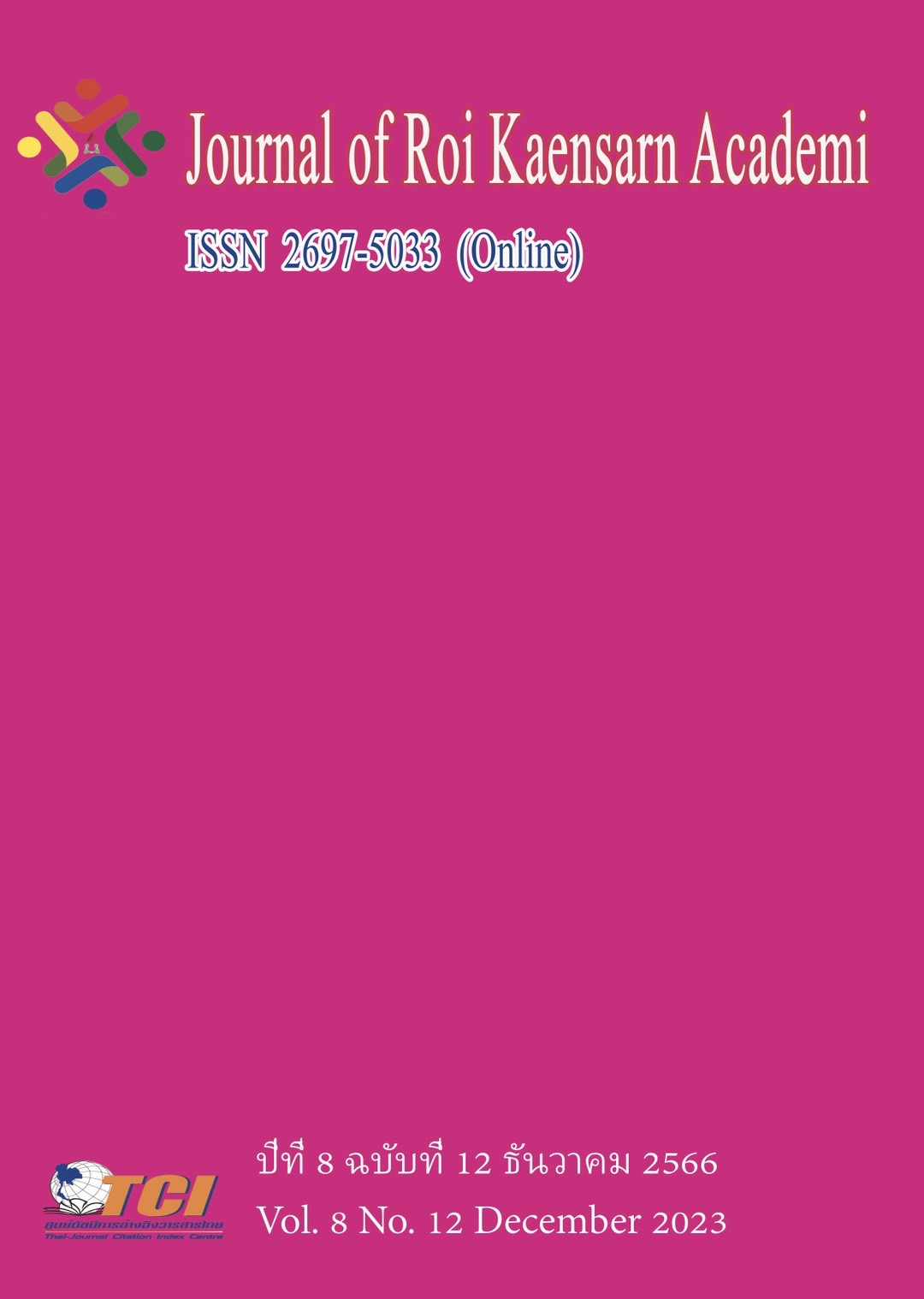The Development of the Mental Health Education Curriculum based on Kolb's Experiential Learning Theory to Improve Ethnic Preparatory Students' Learning Adaptability
Main Article Content
บทคัดย่อ
The learning environment, learning methods, and educational environment of universities are different from those of high school. Quickly transitioning from high school to university, improving learning adaptability has become the primary challenge faced by ethnic preparatory students after enrollment. Conducting mental health education curriculum is an important way to carry out students' mental health education work, and also an important way to enhance their learning adaptability and mental literacy. The mental health education curriculum developed based on kolb's experiential learning theory can fully integrate the needs and psychological characteristics of ethnic preparatory students, and design targeted teaching content. Experiential curriculum focus on students' subjective status, using rich activities as the carrier of teaching, allowing students to experience and gain insights into knowledge. Compared to teacher centered teaching, experiential teaching is more in line with students' mental characteristics.
The objectives of this research were: 1) to investigate the current situation and effectiveness of the mental health education curriculum and ethnic preparatory students' learning adaptability. 2) to develop the component of mental health education curriculum based on Kolb's experiential learning theory in order to improve ethnic preparatory students' learning adaptability. 3)to assess the efficiency of mental health education curriculum based on Kolb's experiential learning theory through comparing the ethnic preparatory students' learning adaptability before and after the implementation of curriculum.
This study combines Kolb's Experimental Learning Theory with the theory of curriculum development,used quantitative methods to explore the changes in learning adaptability before and after the implementation of mental health education curriculum. Researchers developed the content of mental health education curriculum based on Kolb's experiential learning theory and the five major influencing factors of learning adaptability through in-depth questionnaires and educational experiments. 278 ethnic preparatory students were selected to conduct a survey on the current status of mental health curriculum in Baise University, and 50 students were enrolled in the newly developed mental health education curriculum. The survey found that: firstly, ethnic preparatory students generally have low learning adaptability, with an mean of 3.67, indicating a need to improve their cognitive abilities in learning adaptation; Secondly, ethnic preparatory students have a relatively high demand and attention for mental health education curriculum.,that attention to mental health education current is in the Agreement level (=4.37), and Students' demand for mental health education current content is in the Agreement level (=4.37); Thirdly, adopting mental health education curriculum to conduct experiments in the experimental class effectively improves the learning adaptability of ethnic preparatory students. There are statistical significant differences in learning adaptability scores between pre test and post test at the 0.01 level, with a t-test score of 4.43 (p=0.003<0.01)
Article Details
เอกสารอ้างอิง
Dong,Y.F., &Xiao.,W.Y. (2015).A Survey and Reflection on the Teaching Needs of Psychological Health Education Courses for College Students,Introduction to Ideological and Theoretical Education,4(9): 98-101.
G,C.C.,&Xiao,L.G.(2015).Research on Learning Adaptability of Ethnic Students, School Health in China, 3 (4) ,127-128.
Jing,Z.(2020).Exploring the Learning Adaptability of Ethnic Minority College Students,Higher Education Research,11 (7), 27-27.
Intarasompun, W., Muangnual, P., and Punchatree, N. (2022). Active Learning Management and Using E-Portfolio as Authentic Assessment for Teacher Students. Journal of Yanasangvorn Research Institute Mahamakut Buddhist University, 13(2),108–118. Retrieved from https://so04.tci-thaijo.org/index.php /yri/article/view/262856.
Tosati, S. ., Sitthisopasakul, T., and Intarasompun, W. (2021). Enhancing Learning Process by Integrating Contemplative Education Coaching System and Research Base Learning (Ccr) to Strengthen Teacher’s Competencies in Educational Measurement Evaluation and Research Program, Faculty of Education, Bansomdejchaopraya Rajabhat University. Journal of Modern Learning Development, 7(1),124–137.

